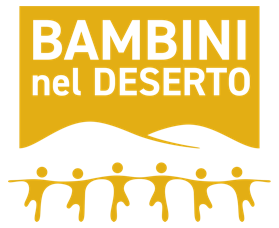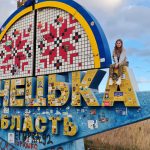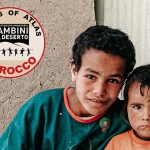‘Thank you very much Mauro. I enjoyed all this sand literature. Tell me… what would you think of a Sand Festival? Thanks and see you soon, AKM’. ..
I confess that the idea of the friend who is an expert in rural management and development intrigued me. If etymologically the word ‘festival’ had a festive connotation it has long been used to justify the assembly of a vast range of disparate subjects. Music, film, beauty, art, poetry, dance, science, philosophy, religion, sport and fashion festivals. I admit that I had never thought of a ‘Sand Festival’ intended as an unlikely celebration of this element that characterizes the life, history and politics of our time. On the other hand, what we experience in the Sahel is nothing other than a dramatic and fascinating Festival in which sand appears as the protagonist but not the only one.
She and, naturally, the dust that feeds and propagates on her. In this season which in these parts is called ‘Harmattan’, the desert wind that marries the sand and from this union comes the dust that the wind shapes, transports and distributes with superb fairness in the various countries of the Sahel. It can therefore be said without any doubt that the Sand Festival is inseparable from the Dust Festival. She is the one who covers the dress of Lawrence, originally from Liberia, singer and guitarist of class ‘Reggae from Jamaica’. After fifteen years of civil war in his country he sings of peace and, already mature in age, decides to reach Morocco and if possible, cross the Mediterranean Sea one day. Having arrived in Niamey, thanks to the closed borders due to the sanctions decided after the coup d’état in Niger, he takes some time to reflect on his life.
Lawrence’s money and desire to travel both ended up in the sand which, in vain, the capital’s ‘green belt’, i.e. the trees planted as a barrier, tried to stop. She says thank you, he stops by the office several times and, while awaiting his imminent repatriation, he inquires about spaces and places where he can express his musical talent. The Sand Festival would respond to his expectations and only the conditions to publicize it sufficiently are lacking. However, those who understand the event mentioned well are the political choices of the three countries where the military took power. Mali, Burkina Faso and Niger are orchestrated by leaders in khaki uniforms whose images dominate, at times, on giant posters in the streets, in newspapers and circulate on mobile phones. After having ousted the French forces from the aforementioned territories, targeting the European agreements on border and migration control, they imposed the withdrawal from the assembly of West African nations, familiarly called CEDEAO. A Festival of words and ambitions that the magic of ‘sovereignty’ and the protection of the homeland ignite immensely. It turns out to be an authentic Dust Festival.
The dry season rhymes with winds that sometimes blow relatively strong and for this reason ‘manufacture’ all the dust that alters the quality of the air and can favor respiratory diseases such as coughs, sore throats and flu. However, the organ most affected by the dust phenomenon are the eyes and therefore the gaze which becomes clouded and loses a clear and honest vision of reality. Around the numerous roundabouts that adorn the capital there is at least one national police officer carrying a machine gun over his shoulder, something unimaginable until a couple of months ago. As for the aforementioned borders, not to mention the one with Benin, they have become a full-blown market in which soldiers, sailors, customs officers and anti-drug agents earn like never before. The numerous travelers who defy the closure by taking the pirogue are discriminated against depending on their nationality of origin, the documents they possess and the merchandise they transport. For six months now the Sand Festival has been crossing the Niger River in a pirogue without showing it.
At the moment, Democracy as a political instrument of change for which many have committed fights, energies and sometimes their lives, seems like a current reality of the past. Luckily she arrives, the dusty sand that the wind drags, for the only Festival that really counts. That of the poor who, like sand, have been trampled on and humiliated for too long. They are, by right, the first protagonists of a Festival who, like Lawrence who fled his country to export peace, silently sing the hope of a people.


